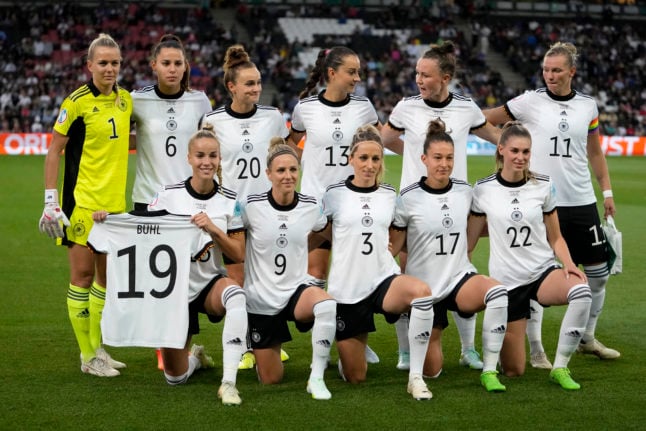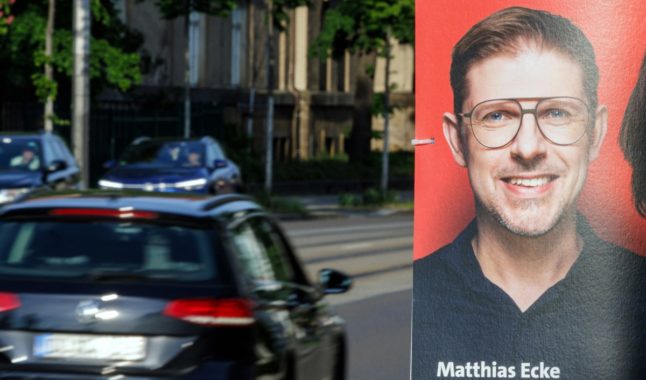“My position on this is clear,” Scholz said after a meeting with the German Football Association (DFB) to discuss the issue.
“We talked about how we can continue to help more girls and women get excited about football. Of course, the wages at such tournaments play a major role in this,” he said.
“That’s why it makes sense to discuss equal pay. I made the suggestion and I’m very grateful that there is a willingness to discuss this issue.”
Germany scored their biggest major tournament success since 2015 at this year’s European Championships, losing to England in the final at Wembley.
Scholz attended the final and also supported the women’s team by tweeting: “It’s 2022, and women and men should be paid equally. This also applies to sport, especially for national teams.”
READ ALSO: Scholz to cheer on Germany at Euro 2022 final

Germany’s women would have received €60,000 each if they had triumphed at the tournament, while the men would have received €400,000 each had they prevailed at the Euros last year.
Bernd Neuendorf, president of the DFB, said he understood the argument “that equal work and success should also have the same value”.
“I’m willing to discuss in our committees whether our payment system is up to date or whether it should be adjusted,” he said.
Germany coach Martina Voss-Tecklenburg suggested that international footballers’ wages could be evened out by paying women more and men less.
Officials must now “follow up with action” after the meeting, she said in an interview with the ZDF broadcaster.
Scholz said he was “very, very proud” of the women’s performance at the Euros, even if “it didn’t quite work out”.
“I hope it will have a long-lasting effect, not only on the players themselves… but also on football in Germany,” he said.



 Please whitelist us to continue reading.
Please whitelist us to continue reading.
This is way more complicated than just plain equal pay. The womens sport doesn’t bring in as much money as the mens does because of the quality.
When their sport brings in the big bucks they will naturally earn more.
Gender is not a reason women earn less.